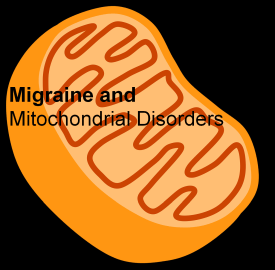Migraine and Mitochondrial Disorders
We’ve talked before about the relationship between migraine and mitochondrial disorders (see Fight Migraine: Be nice to your Mitochondria. Not only commonly known mitochondrial diseases, but also disorders related to mitochondrial DNA (mtDNA), have a strong relationship to migraine.
 These include gastrointestinal disorders, such as irritable bowel syndrome, and problems like gastric stasis (a challenging problem in migraine because your medication isn’t properly absorbed).
These include gastrointestinal disorders, such as irritable bowel syndrome, and problems like gastric stasis (a challenging problem in migraine because your medication isn’t properly absorbed).
Many people with mitochondrial disorders do have migraine – but is this really a higher amount than the general population? An Italian study published earlier this month says “yes”.
93 patients were a part of the study, each with a mitochondrial disorder, such as progressive external ophthalmoplegia (a condition causing weakness in the eye muscles), myoclonic epilepsy with ragged red fibres (a condition typically causing muscle twitches, weakness, and progressive stiffness), and mitochondrial encephalomyopathy, lactic acidosis and stroke-like episodes (with symptoms such as muscle weakness and pain, headaches and seizures).
35.5% of these patients had migraine. That’s well over the numbers typically cited for the general population – about 15%. Most commonly, this was migraine without aura.
There were a few other interesting notes. Patients with epilepsy, stroke-like episodes, and myoclonus (muscle jerking) were more likely to have migraine. However, migraine patients were less likely to experience muscle weakness, or to have abnormalities in EEGs.
There is increasing interest in how problems with the mitochondria may affect our health. And now we have more evidence that migraine may be related to those problems.
Read the study abstract here: Migraine in mitochondrial disorders: Prevalence and characteristics
